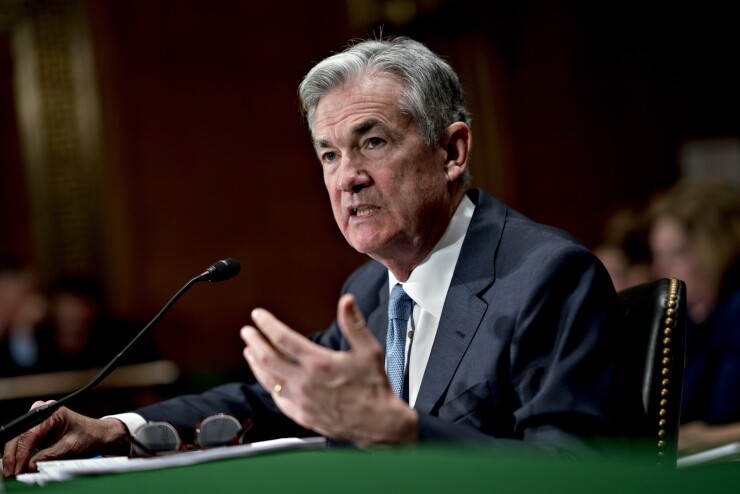Federal Reserve chair Jerome Powell was quick and to the point in a speech Friday morning: Inflation is not yet tamed, and until it is, households and businesses may feel the pinch.
Speaking during his concluding remarks at the annual Jackson Hole symposium sponsored by the Kansas City Fed Friday morning, Powell said that getting inflation under control is the Federal Open Market Committee's "overarching focus," because price stability is a bedrock upon which the rest of the economy rests.
"Without price stability, the economy does not work for anyone," Powell said. "In particular, without price stability, we will not achieve a sustained period of strong labor market conditions that benefit all. The burdens of high inflation fall heaviest on those who are least able to bear them."

Powell went on to say that despite some promising
"While higher interest rates, slower growth, and softer labor market conditions will bring down inflation, they will also bring some pain to households and businesses," Powell continued. "These are the unfortunate costs of reducing inflation. But a failure to restore price stability would mean far greater pain."
Markets have been jittery
"While the lower inflation readings for July are welcome, a single month's improvement falls far short of what the committee will need to see before we are confident that inflation is moving down," Powell said.
Powell's speech all but assures markets that the FOMC will raise interest rates by at least 50 basis points at its next meeting in September, with a
Powell added that there were important lessons that the central bank is taking into its ongoing fight against inflation. The first is that the FOMC sees inflation as its problem to solve, a matter that was "widely questioned during the Great Inflation period" of the late 1970s and early 1980s but that the central bank now regards as "settled."
The second is a renewed appreciation for the role that the public's expectations for inflation play in inflation itself — high inflation is a self-fulfilling prophecy, and bringing it into line with the Fed's target rate will require not only addressing economic indicators but also changing people's inner narratives about price stability.
"If the public expects that inflation will remain low and stable over time, then, absent major shocks, it likely will. Unfortunately, the same is true of expectations of high and volatile inflation," Powell said. "The longer the current bout of high inflation continues, the greater the chance that expectations of higher inflation will become entrenched.
The final lesson, Powell said, is that being aggressive in taming inflation now is preferable to adopting half-measures that might be more popular but would ultimately fail to bring inflation under control.
"A lengthy period of very restrictive monetary policy was ultimately needed to stem the high inflation [of the 1970s] and start the process of getting inflation down to the low and stable levels that were the norm until the spring of last year," Powell said. "Our aim is to avoid that outcome by acting with resolve now."




